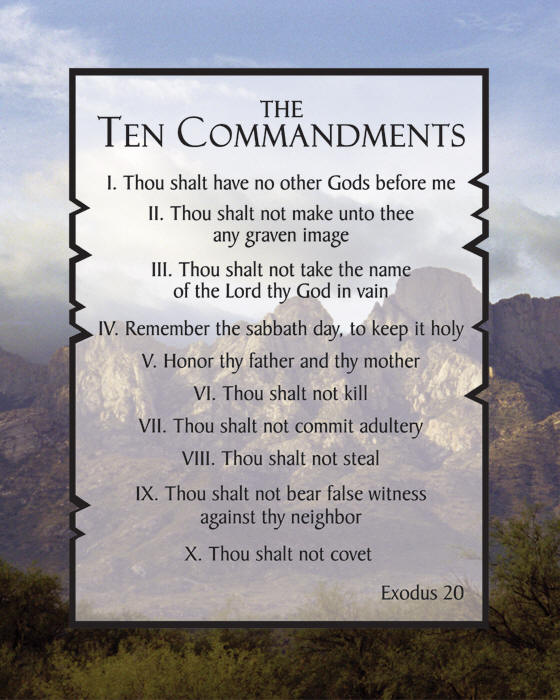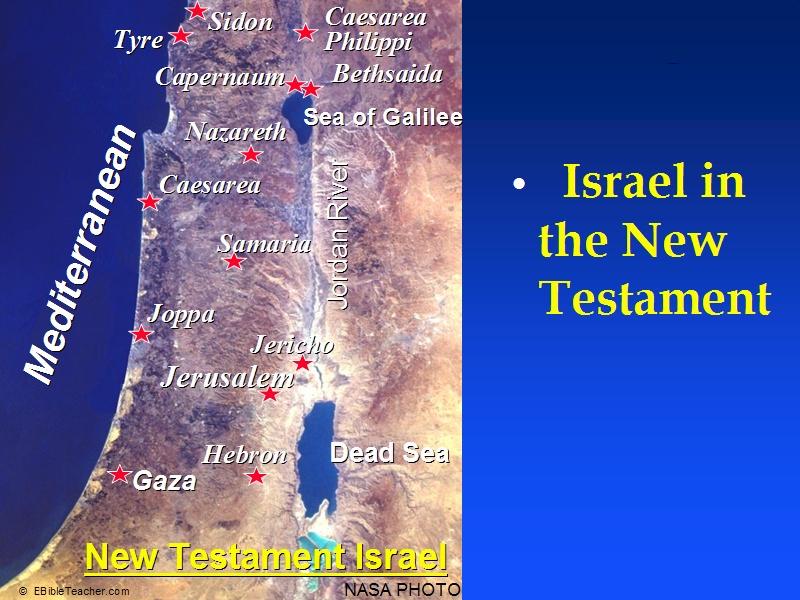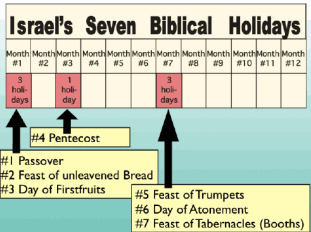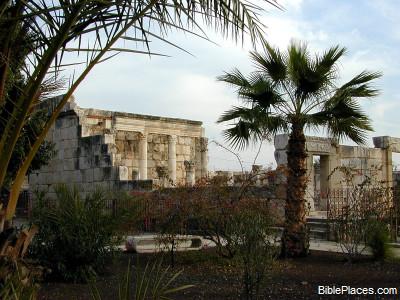
Verses 37-44 Jesus' Words Split the Crowd
Verses 45-52 Religious Fallout
COMMENTARY
Verses 37-44
v. 37 Now on the last day, the great day of the feast, Jesus stood and cried out, saying, "If any man is thirsty, let him come to Me and drink. The Festival of Booths was primarily a festival of celebration with Yom Kippur being a festival of fasting and resting. The last day of the Festival of Booths or Tabernacles was the greatest day, the climax, the most important day, and/or the great day of festivity. Thirsty (διψᾷ)? Then come (ἐρχέσθω) and drink (πινέτω). If you are not thirsty, then do not come. If you are thirsty, then come. If you come, then drink. How rare it is to encounter someone at a party or festival that does not have something to drink in their hand or near by. I know, at a party, alcohol or strong caffeinated drinks are usually available at the bar. But Jesus, and what He brings, supersedes any kind of argument related to the substance of thirst quenching beverages. v. 38 "He who believes in Me, as the Scripture said, 'From his innermost being shall
 flow rivers of living waters.'" The Greek word, τῆς κοιλίας, translated 'innermost being' means: belly, womb, inner man, heart, stomach, abdomen. Which of these meanings will be clarified as we read further. v. 39 But this He spoke of the Spirit, whom those who believed in Him were to receive; for the Spirit was not yet given, because Jesus was not yet glorified. At the end of this Festival of Booths in which there was much opportunity to quench thirst, Jesus declares Himself to be the source of renewable, not stagnant like a well, beverage. The Spirit, the third person of the Trinity, is soon to be given and will always be fresh while convicting, renewing, prompting, guiding, and declaring. The Apostle Paul, in his letter to the Ephesians (5:18), was applying this Gospel passage in stating: "Do not get drunk on wine, which leads to debauchery. Instead, be filled with the Spirit." The Greek word, ἐδοξάσθη, translated 'glorified' means: to properly ascribe weight by recognizing real substance, to magnify, extol, held in honor, to distinguish. The following responses to Jesus' words fulfill Paul's writing in Letter to the Romans (1:18-23). 'Glory', which is closely related to 'worship,' is a huge issue when making conscious decisions. Below we have a myriad of responses. v. 40 Some of the multitude therefore, when they heard these words, were saying, "This certainly is the Prophet." v. 40. Others were saying, "This is the Christ." Still others were saying, "Surely the Christ is not going to come from Galilee, is He? v. 42 "Has not the Scripture said that the Christ comes from
flow rivers of living waters.'" The Greek word, τῆς κοιλίας, translated 'innermost being' means: belly, womb, inner man, heart, stomach, abdomen. Which of these meanings will be clarified as we read further. v. 39 But this He spoke of the Spirit, whom those who believed in Him were to receive; for the Spirit was not yet given, because Jesus was not yet glorified. At the end of this Festival of Booths in which there was much opportunity to quench thirst, Jesus declares Himself to be the source of renewable, not stagnant like a well, beverage. The Spirit, the third person of the Trinity, is soon to be given and will always be fresh while convicting, renewing, prompting, guiding, and declaring. The Apostle Paul, in his letter to the Ephesians (5:18), was applying this Gospel passage in stating: "Do not get drunk on wine, which leads to debauchery. Instead, be filled with the Spirit." The Greek word, ἐδοξάσθη, translated 'glorified' means: to properly ascribe weight by recognizing real substance, to magnify, extol, held in honor, to distinguish. The following responses to Jesus' words fulfill Paul's writing in Letter to the Romans (1:18-23). 'Glory', which is closely related to 'worship,' is a huge issue when making conscious decisions. Below we have a myriad of responses. v. 40 Some of the multitude therefore, when they heard these words, were saying, "This certainly is the Prophet." v. 40. Others were saying, "This is the Christ." Still others were saying, "Surely the Christ is not going to come from Galilee, is He? v. 42 "Has not the Scripture said that the Christ comes from  the offspring of David, and from Bethlehem, the village where David was?" v. 43 So there arose a division in the multitude because of Him. v. 44. And some of them wanted to seize Him, but no one laid hands on Him. 1. Some of the multitude: Identified the Prophet. 2. Others: Identified the Christ. 3. Still others: Express their Biblical and Prophetical knowledge. We three clearly defined groups with three differing expressions. What's up with the distinction and how does that led to 'some of them' wanting to 'seize Him?' There is a difference between being the Prophet (ὁ προφήτης), the Christ (ὁ χριστός) and fulfilling origin prophecies. Luke addresses their paternal lineage question in Luke 2:1-7 (The Nativity Story).
the offspring of David, and from Bethlehem, the village where David was?" v. 43 So there arose a division in the multitude because of Him. v. 44. And some of them wanted to seize Him, but no one laid hands on Him. 1. Some of the multitude: Identified the Prophet. 2. Others: Identified the Christ. 3. Still others: Express their Biblical and Prophetical knowledge. We three clearly defined groups with three differing expressions. What's up with the distinction and how does that led to 'some of them' wanting to 'seize Him?' There is a difference between being the Prophet (ὁ προφήτης), the Christ (ὁ χριστός) and fulfilling origin prophecies. Luke addresses their paternal lineage question in Luke 2:1-7 (The Nativity Story).Verses 45-52
v. 45 The officers therefore came to the chief priests and Pharisees, and they said to them, "Why did you not bring Him?" Remember the officers? They were sent by the chief priests and Pharisees to seize Jesus (v. 32). The officers returned to the senders empty handed. They did not carry out the arrest warrant. They failed and they are asked 'why.' v. 46 The officers answered, "Never did a man speak the way this man speaks." They answered commenting on Jesus' authority expressed in the way He spoke. What did they hear? First, since being sent by the chief priests and Pharisees, they heard Jesus comment on His coming and going which no one will know about. Second, they heard Jesus address His ability to quench thirst that no party or festival beverage can quench. He will provide living water. That was their answer to the chief priests and Pharisees. v. 47 The Pharisees therefore answered the, "You have not also been led astray, have you? v. 48 "None of the rulers or Pharisees has believed in Him, has he? v. 49 "But this multitude which does not know the Law is accursed." The Pharisees are who are experts at being led astray, not believing and not knowing the Law, reveal their character. The Pharisees: "were the most respected and influential group in Judaism. Having originated about 135 B.C., they were committed fellowship of men, determined to follow in exact detail everything required in the Mosaic Law. ... But the Pharisees made a tragic mistake. It began with their scribes (the experts in Bible interpretation) constantly interpreting and reinterpreting the Mosaic Law to show how it might apply to every aspect of contemporary life. To the Pharisee, these interpretations and additions were the oral Torah (law), which they place beside the written Torah as havi
 ng equal authority." - Expository Dictionary of Bible Words, Lawrence O. Richards, Zondervan, p. 484-485, 1985. They, themselves, were lead astray from the Law. v. 50 Nicodemus said to them (he who came to Him before being one of them), v. 51 "Our Law does not judge a man, unless it first hears from him and knows what he is doing, does it?" Remember Nic from John Chapter Three? There he was identified by John as a 'ruler of the Jews.' He was part of the religious ruling party. They claimed to have all religious authority as they ruled the behaviors of the people. Nicodemus, a changed man, argues for Jesus to be able to defend Himself. With this then the Pharisees, who have not heard these words for themselves, as the officers had, might ascribe authority to Jesus' teachings. v. 52 They answered and said to him, "You are not also fro
ng equal authority." - Expository Dictionary of Bible Words, Lawrence O. Richards, Zondervan, p. 484-485, 1985. They, themselves, were lead astray from the Law. v. 50 Nicodemus said to them (he who came to Him before being one of them), v. 51 "Our Law does not judge a man, unless it first hears from him and knows what he is doing, does it?" Remember Nic from John Chapter Three? There he was identified by John as a 'ruler of the Jews.' He was part of the religious ruling party. They claimed to have all religious authority as they ruled the behaviors of the people. Nicodemus, a changed man, argues for Jesus to be able to defend Himself. With this then the Pharisees, who have not heard these words for themselves, as the officers had, might ascribe authority to Jesus' teachings. v. 52 They answered and said to him, "You are not also fro m Galilee, are you? Search, and see that no prophet arises out of Galilee." They are intimidated and threatened. Therefore they shift the focus. They address Nic's origins. They resort to their previous defense of Galilee being the undesired origin of anything godly (cf. John 6:42; 7:41). They are convinced that their knowledge of the Law (both Torahs) is supreme to anything that Jesus may say.
m Galilee, are you? Search, and see that no prophet arises out of Galilee." They are intimidated and threatened. Therefore they shift the focus. They address Nic's origins. They resort to their previous defense of Galilee being the undesired origin of anything godly (cf. John 6:42; 7:41). They are convinced that their knowledge of the Law (both Torahs) is supreme to anything that Jesus may say.SUMMARY
Relationships! It amazes me how often societies find themselves gathering at places of beverage consumption. Star Bucks is a high powered the coffee house by developing a following (a tribe) of young people in selling them overpriced coffee. Bars and clubs never survive where alcohol is not permitted to be sold. Beverage and the 'art' of drinking attracts people with a relational need. Therefore, Jesus said, if you are thirsty, come to me. You will never thirst again. Does having your basic and all defining need met in Jesus make you nervous about having your thirst forever quenched: no more drunkenness? Honestly, do I trust Him to begin my day? Do you trust Him to relax you, unwind you, take the edge off, or remove you from the stress of life? Are your relationships defined by what you drink? or, who you trust?
Bible Study
Without the Spirit of God, my Bible study is nothing but an exercise in knowing hist
 ory. With the Spirit of God (living waters), my Bible study produces revelation of the person and purpose of Almighty God (YHWH, אֶֽהְיֶ֖ה אֲשֶׁ֣ר אֶֽהְיֶ֑ה, I AM, ἐγὼ εἰμι), resulting in a changed me towards the image of His Son, doing the will of the Father.
ory. With the Spirit of God (living waters), my Bible study produces revelation of the person and purpose of Almighty God (YHWH, אֶֽהְיֶ֖ה אֲשֶׁ֣ר אֶֽהְיֶ֑ה, I AM, ἐγὼ εἰμι), resulting in a changed me towards the image of His Son, doing the will of the Father.Romans 1:18-23
For the wrath of God is revealed from heaven against all ungodliness and unrighteousness of men, who suppress the truth in unrighteousness, because that which is known about God is evident within them; for God made it evident to them. For since the creation of the world His invisible attributes, His eternal power and divine nature, have been clearly seen, being understood through what has been made, so that they are without excuse. For even though, they knew God, they did not honor Him as God, or give thanks; but they became futile in their speculations, and their foolish heart was darkened. Professing to be wise, they became fools, and exchanged the glory of the incorruptible God for an image in the form of corruptible man and of birds and four-footed animals and crawling creatures. (Verse 24 Begins with 'Therefore ....")
Family Life Style Ministries, Inc.
E-mail: flsministries@bellsouth.net
Twitter: flsministries
FaceBook: Family Life Style Ministries, Inc.






